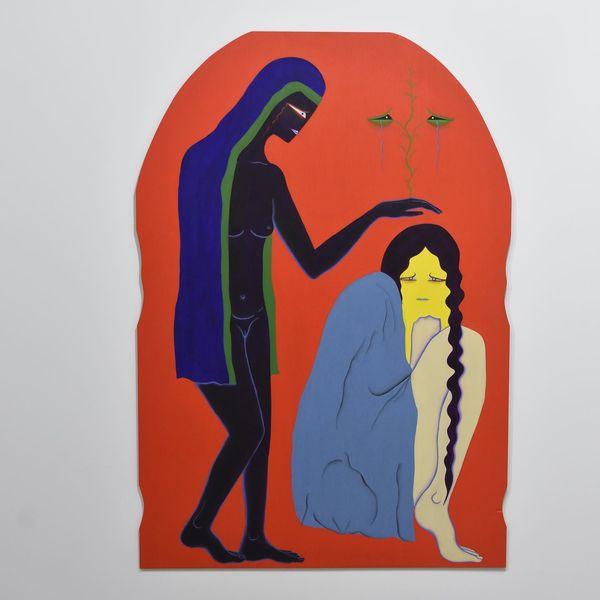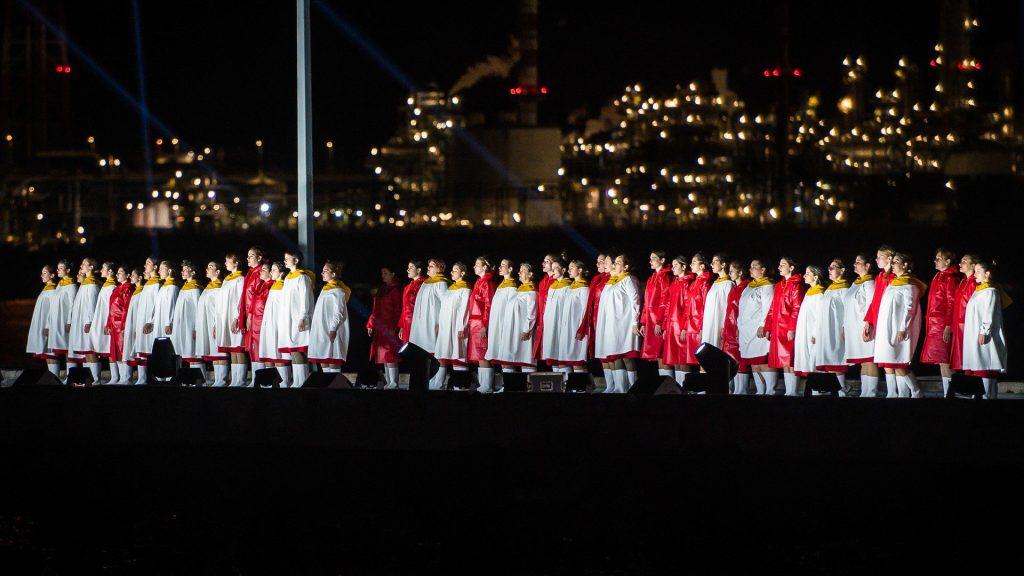The Greek city Elefsina, European Capital of Culture 2023, is a place of contrasts. It once was the site of the Eleusinian Mysteries, today it is a major industrial centre of Greece. SOCIETY spoke with the Greek Ambassador to Austria, H.E. Catherine Koika, about the “city of mysteries” and its ECOC programme.
One of the three European Capitals of Culture 2023 is the Greek city Elefsina, located around 20 kilometres to the west of Athens. What makes this city special? Why is it worth visiting?
Eleusis or Elefsina is one of the five holy cities of Ancient Greece, marked by men and gods and it is the sight of the Eleusinian Mysteries, of Demeter, Persephone and the father of tragedy, Aeschylus. Of the spectator and the mystic. Of hope for life after death. Of history and myth, whose thread reaches us. A city of theatre people before the theatre was invented. Little and big. Ancient and modern. Hard to reach and humane at the same time. “A city of internal internationalism”, as Michael Marmarinos, artistic director of the event, puts it. Diverse and contradictory, with huge archaeological resources. Indelibly marked by industrial development, deindustrialization and high unemployment, Elefsina is the other side of touristic Greece. A city with significant cultural loads that changes through culture. Which renews itself and reinvents itself, reclassifying its cultural reserves. „Social sculpture“ is the hidden subtitle of the project, i.e. how art and culture shape the dynamic form of a city in the present, looking towards the future as well. With an emphasis on entrepreneurship and science that will form the background of the city’s economic, social and cultural development and give it a uniqueness, so that one is motivated to visit it.
What will be the highlights of the yearlong programme on the occasion of the ECOC 2023?
With its three central thematic axes “People / Society”, “Environment” and “Labor”, Elefsina presents a voluminous, rich and innovative programme entitled „Mysteries of Transition“ including 130 artistic works (mysteries), 465 events, 30 different venues, 17 art forms, 192 Greek and 137 international creators from 30 countries that have involved local associations, communities and citizens. Those who were tasked with illuminating the place, its presence and its essence, do so in a unique way through their work. Examples include the „7 Columns“ by Heiner Goebbels, “Ma” by Romeo Castellucci, the documentary „The Eleusinians“ by Philippos Koutsaftis (the sequel of the landmark film about the Eleusis Agelastos stone), the „Human Requiem“ by Sasha Waltz and Jochen Sandig, an exclusive in situ version of the Orphic myth by Yiannis Houvardas, “The Arches” of Euripides Laskaridis, Eleni Karaindrou with „the thought of Theodore“ or the documentary festival „In situ realities“. There is also a touch of Austria: the Austrian director David Haneke, son of Michael Haneke, wants to make a film based on recordings of the „Human Requiem“.
In your opinion, what is the sustainable value of the title “European Capital of Culture”, not only for the city but also for the whole country?
The initiative returns to its source, its cradle. Elefsina and Greece will radiate worldwide. The city, of cute cafes but also of smoke and factories, the city of contrasts, the city where life and death meet, is changing its face, transforming into a laboratory of innovative and collective actions that reorganize and renew existing structures and mutate into a social and economic development with a strong, unique and lasting cultural imprint. For Greece, the event is a lesson in mobility, unity, cooperation and creativity – far beyond 2023. Elefsina will “inherit” programmes and infrastructure with the aim of becoming a place of culture, leaving a living legacy (beyond the artistic one). A legacy not only for Eleusis and Thriasio but also for the metropolis and Attica and the country as a whole. Eleusis could be a laboratory regarding the major social and economic issues Europe is facing.
One of the core values of the ECOC programme is to strengthen the cohesion among the population of the European Union. How important is the exchange between European citizens?
The European Capital of Culture Programme, initiated by then Minister of Culture of Greece Melina Mercouri in 1985, emerged as one of the most important cultural events promoting Europe’s cultural diversity, dialogue and mutual understanding between European citizens, as well as strengthening mobility between the countries of the European Union. The rationale of the institution is based on what we share while being different, on highlighting and promoting our common European identity. Cities acquire a European profile without losing their individuality. Culture empowers and animates, teaches and inspires, highlighting elements that characterize others. Culture is a unifying process and through diversity, the common elements emerge, which forge the European cultural identity. Culture softens differences in communication, builds conditions of mutual trust. This is the uniqueness of the European project.
Is the Embassy of Greece in Austria planning any activities or events in this regard?
The Embassy is currently working on proposals to promote the cultural spring of the city of Elefsina and will soon communicate related initiatives.







